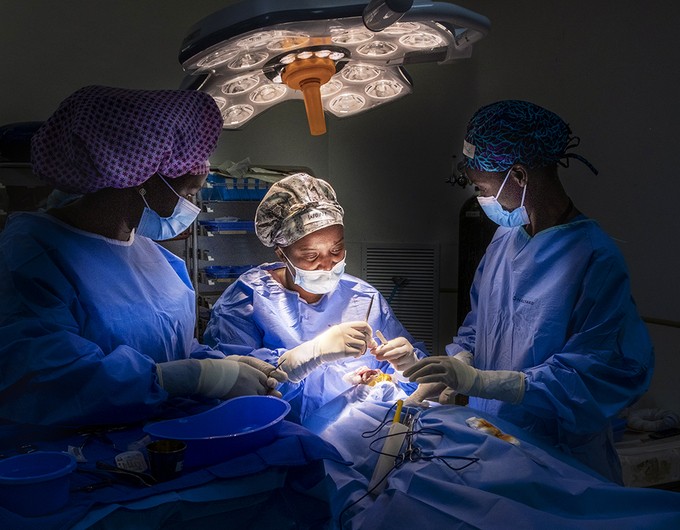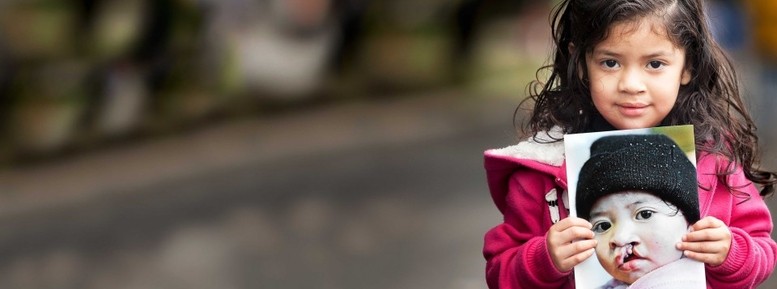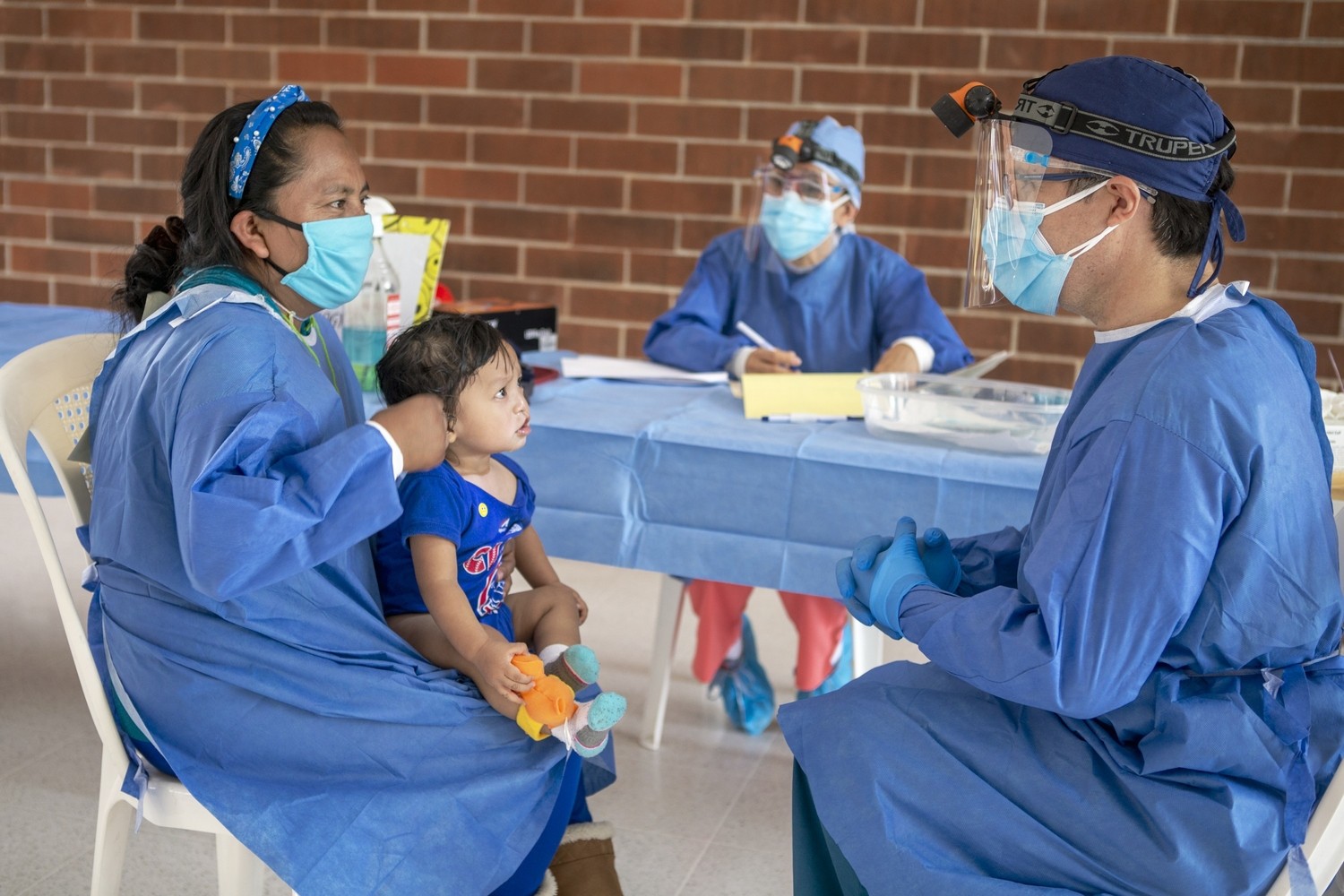
Our promise of improving health and dignity during the COVID-19 pandemic endures. We're helping front-line health workers stay safe, nourished and empowered to better serve their patients by providing life-saving supplies and equipment, as well as remote training to bolster their response. We’re also providing nutritional assistance, hygiene kits and virtual health services to support people and their health needs so they can thrive. If you can, when you can, help us keep our promise to care for children and create hope for tomorrow.
As a volunteer pediatric dentist, Dr. Guillermo Cifuentes understands the vital role in-person care serves when building trust between himself, his patients and their families.
Though the COVID-19 pandemic temporarily halted Guillermo’s ability to deliver dental care face-to-face, providing virtual services gave him and his fellow volunteers a greater regard of the harsh reality that many patients face when trying to access care in resource-limited communities.
“We can do so much more when being in direct contact with the patients, but remote consultations allowed us to gain a deeper perspective into our patients’ lives,” Guillermo said. “I got to see their humble houses and rooms. Their wooden walls and tin roofs made me more aware of their reality, of the poverty in which they live, and it’s encouraged me to help even more.”
According to Guillermo, not everyone has what it takes to donate their time and expertise as a volunteer for Operation Smile.
“The important thing about volunteering is that it must come from the heart. You can’t force someone to do it,” he said. “What I like the most about volunteering is interacting with the patients and their parents, witnessing their happiness.”
We caught up with Guillermo to learn more about where his passion to volunteer began as well as how adjusting to virtual consultations reinforced why many patients and families depend on the care Operation Smile provides around the world.
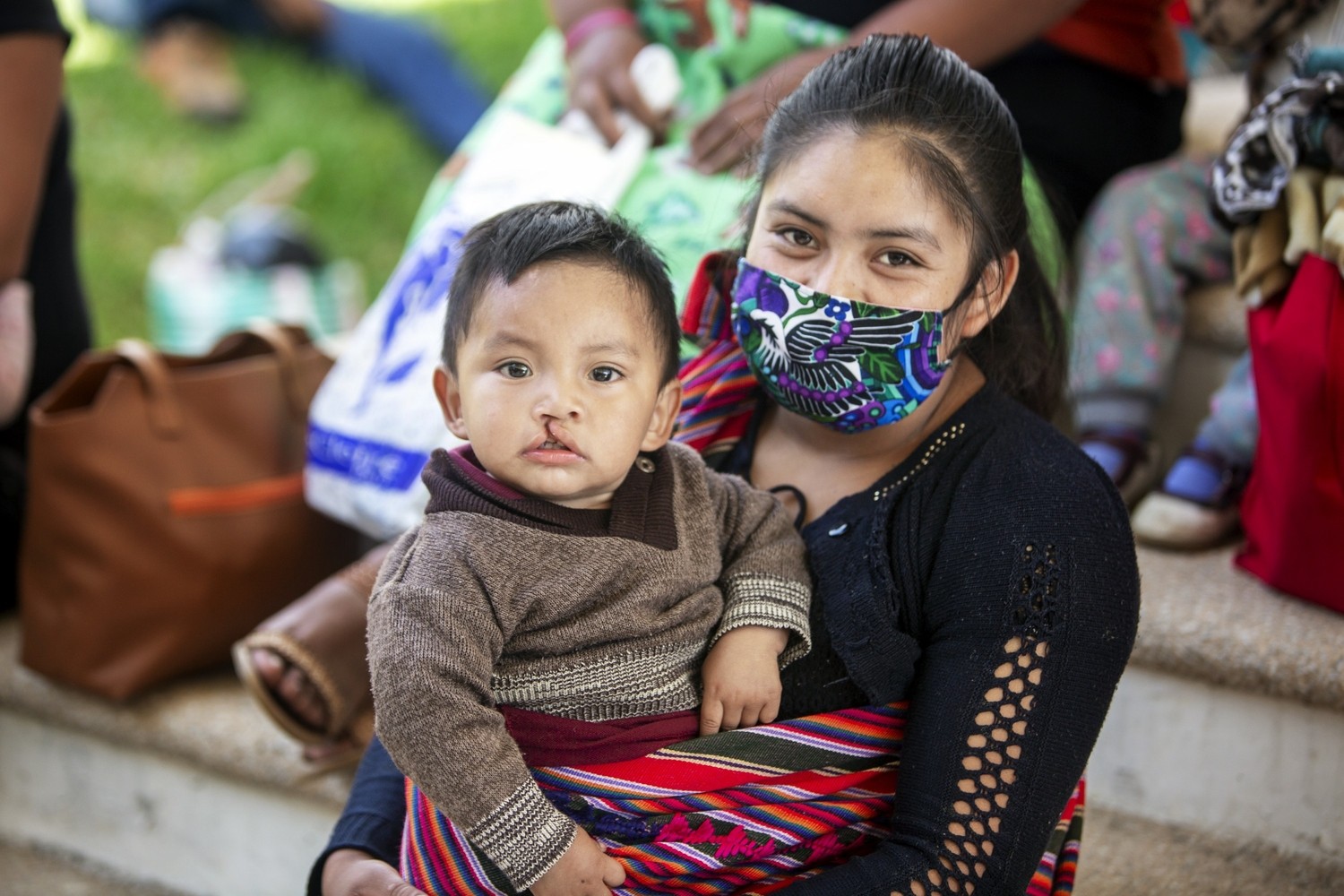
Q: Why did you decide to become a volunteer for Operation Smile?
A: “I’ve always liked helping others. It’s something I had as a family. We always carried out some type of social service to help those who needed it the most. When I became a dentist and found out about Operation Smile, I managed to apply my knowledge to help my team and the children who have cleft conditions.
“What I like the most about volunteering is interacting with the patients and their parents, witnessing their happiness and how they change throughout the process that we help them through. And then, after the surgery, seeing the happiness on the parent’s face when their child can smile properly.”
Q: Why is it so important that parents trust the treatment you’re delivering to their children?
A: “It’s of great help when the parents trust the treatments we choose, especially in pre-surgical orthopedics. It’s very helpful for us when the parents know the procedure and that they know that the pre-surgical orthopedics helps their child feed better, the development of the arches and the conformation of the nose.
“Babies can feel their parents’ mood. If the mom, mainly, is in doubt, nervous or apprehensive, it will be difficult for the baby to accept the obturator. It’ll take more time. We must notice when this happens to give the mother positive reinforcement and show her she has strength and security to transmit that to the baby.”
Q: How do you feel knowing that you are changing your patients' lives for the better?
A: “You won’t believe me, but the truth is I don’t think much about the fact that I’m an instrument of change in the lives of these children. It’s not something that I think about often. I just like to come to examine my patients. Of course, deep down, I know I’m contributing, that I’m a link in a chain by doing my job."
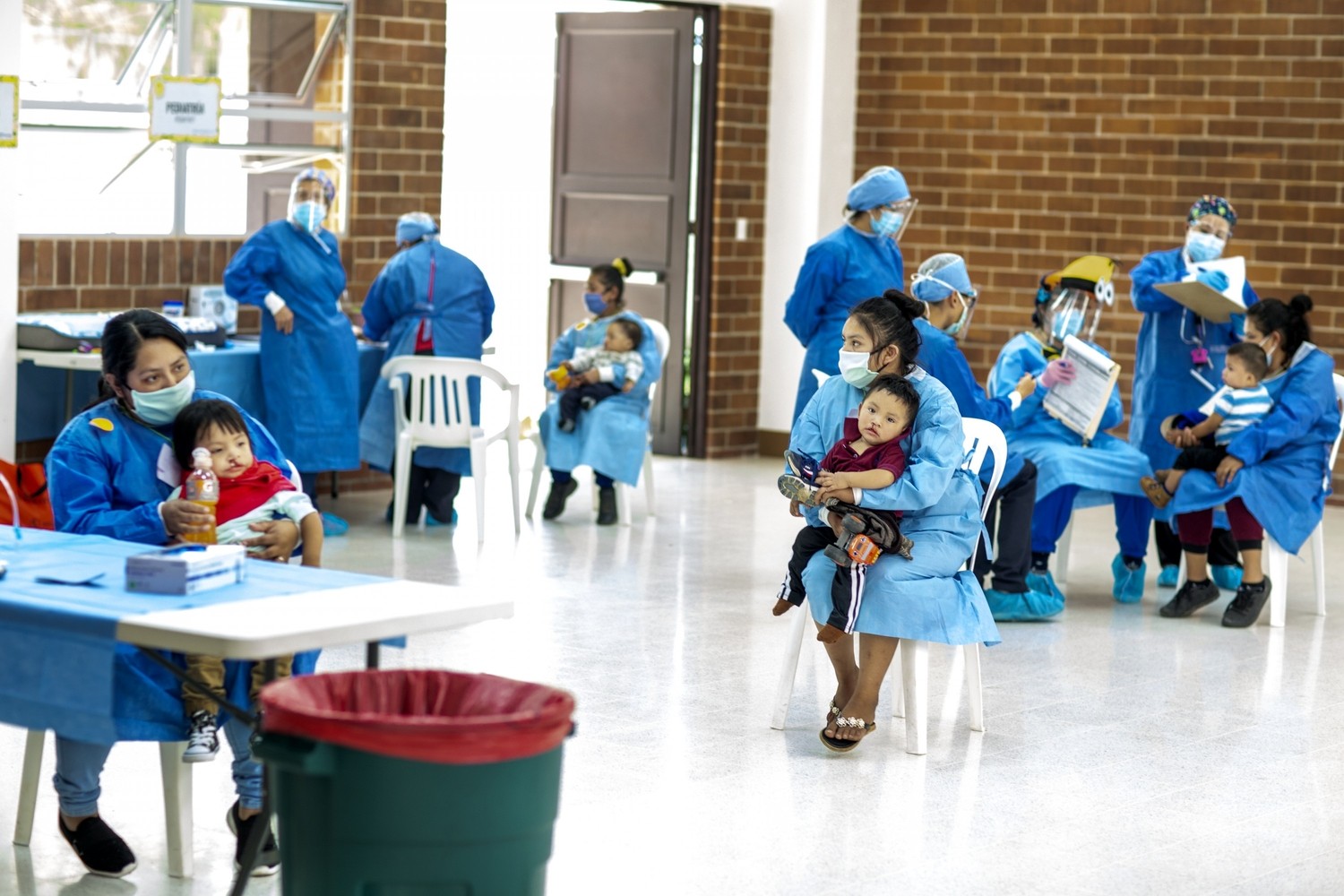
Q: The COVID-19 pandemic has been very difficult for all of us. You had to start working in a virtual clinic, which is new for you. What has the pandemic taught you about yourself and Operation Smile Guatemala?
A: “The pandemic has taught me how to take care of patients even with the restrictions. It can be frustrating to have remote consultations because we lack that close contact with our patients, which is very much needed. We can do so much more when being in direct contact with the patients, but remote consultations have allowed us to gain a deeper perspective into our patients’ lives and homes.
“During the first calls that we made, I got to see their humble houses and rooms. Their wooden walls and tin roofs made me more aware of their reality, of the poverty in which they live, and it’s encouraged me to help even more. It’s encouraged me to go ahead with the remote consultations because even if I can't touch them, it's very valuable for them. They call me and say, ‘Doctor! Good to see you! Doctor, look at how much my baby grew!’
“They’re very happy. They have taught me so much. They lift my spirits and make me understand that those calls are very important, even if we only see each other through a screen.”
Q: You’ve been able to have that physical contact with them again and help your patients in person. How do you feel about being able to go back to the clinic?
A: “The night before going back to the clinic, it was like the day before an exam. I didn't sleep well because of the excitement. I was expectant. I felt a bit nervous, but at the same time, I was happy. Being able to go to the hospital again was wonderful. It’s a part of me. It's what I do. My second home. It completes me. I feel like myself again.
“Getting to see the patients, the team of volunteers, and being able to physically evaluate the patients, to see the mother's eyes while I explain the treatment and its benefits, and how it’s the first step toward surgery.”
Q: Explain to us why it’s so important that children born with cleft conditions receive orthopedic care?
A: “These kids need to use their obturators. But during the pandemic, those who were already receiving the treatment had to pause it. Those who were born during the pandemic and haven’t yet started the treatment have been losing a lot of weight because it’s difficult for the moms to learn how to feed them on their own. They get very frustrated when they can't breastfeed their children, giving them formula instead. We must begin or continue the treatments so that we can make sure that the separated segments develop correctly and eventually allow the child to feed properly.
“It’s important that the babies who were already receiving treatment get to continue with the process because their mothers tried to make them use the insert for as long as possible until it didn’t fit anymore. We looked for alternatives. Resuming the treatment means straightening and correcting the position of the segments like we were trying to achieve earlier for some. And for others, it’s about achieving better diction, better pronunciation and learning to breathe through their nose, which is something that they must learn. That's the important thing.”
Q: Lastly, is there anything you’d like to say to other doctors or members of your specialty about volunteering?
A: “The important thing about volunteering is that it must come from the heart. You can’t force someone to do it. I could tell someone, ‘Come on, help us,’ but if that person lacks the conviction and desire to do it, they won’t be a good volunteer.
“There are lots of people who volunteer and many others who wish to do so. Many professionals have the knowledge and time to dedicate to our young patients, in our case, with their cleft lip or cleft palate. I invite those doctors to volunteer. We would benefit greatly from their knowledge, and our patients would, too. I invite those doctors to come to us, to get more information about Operation Smile Guatemala. I invite them to come here to the hospital, where we can inform them better on how to use their knowledge to help others.”
Latest Stories
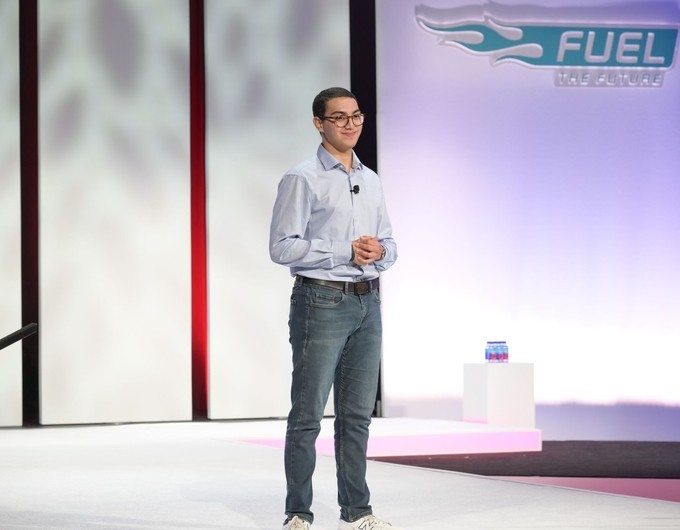
A Former Patient, Aymane Now Shares His Story

What is Operation Smile's Nutrition Program?
